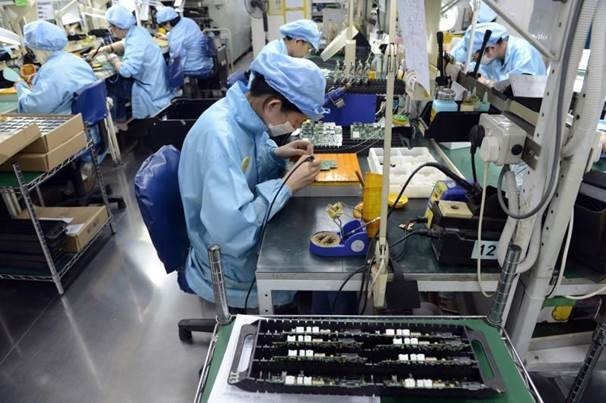
Image credit: The Star
SINGAPORE, Feb 21 (The Straits Times/ANN): When Singapore entered the circuit breaker period last April, Toby Koh, group managing director of Ademco Security Group, was concerned that his security firm would suffer financial loss.
But with help from the Jobs Support Scheme (JSS), which helps employers pay a portion of their workers' monthly salary, he not only managed to retain all 253 existing full-time staff, he even managed to expand his workforce.
By last December, he had hired nine more full-time staff.
But even without the JSS support, Koh said, he would not have retrenched any Singaporean staff and would have hunkered down to ride out the crisis.
This is because security is considered essential services, which makes the sector more resilient to economic downturns, he added.
I'm appreciative of the JSS support which helped greatly, but we are ready to go on our own merits now that the worst of Covid-19 seems to be over," he said.
Industries that are recovering, such as electronics, biomedical sciences and precision engineering, are no longer getting JSS support from last month.
Other industries, such as security and food manufacturing, will cease to have JSS payouts after next month.
Most of the companies in these recovering sectors interviewed by The Sunday Times said they were not expecting the JSS payouts to be extended for them.
But all said that when the coronavirus pandemic struck, the JSS proved to be a critical lifeline in the early part of last year, without which their businesses would not have been able to survive.
While the JSS has helped these companies get back on their feet, many are not yet back to pre-Covid-19 levels, although some are optimistic about the economic recovery ahead.
Nikhilesh Goel, co-founder and chief executive of Validus Capital, a small and medium-sized enterprises (SMEs) financing firm, said that while it has yet to completely return to pre-Covid-19 levels, it is "well on track with disbursement volume increasing every month".
"Post-pandemic, we expect volumes to increase significantly as SME financing remains critical and the region undergoes tremendous growth and development," he said.
One of the bright spots in Singapore's economy last year was the manufacturing sector.
It saw 7.3 per cent growth year on year for the whole of last year, reversing the 1.5 per cent decline seen the previous year, due to output growth in the electronics, biomedical manufacturing and precision engineering clusters, according to the Ministry of Trade and Industry's economic survey released on Feb 15.
This comes as Singapore's economy contracted 5.4 per cent last year - its worst full-year recession since independence.
However, Singapore Manufacturing Federation president Douglas Foo noted that the manufacturing sector cuts across many different industries and not all performed well.
Medical technology (medtech) and semiconductors have done "relatively well", but transport engineering and oil and gas have not, he said.
"Manufacturers should hasten their adoption of digital technology and transform their business operations towards automation. Staff upskilling and retraining are critical... in these challenging times," said Foo.
Medtech firm Racer Technology chief executive Willy Koh said that while the medtech industry is recovering faster than other industries, many SMEs such as his have missed out on overseas opportunities due to travel curbs and were restricted to the smaller local market.
"Without the JSS support, SMEs of our size will still have to work hard in exploring new areas of business development and venturing within our local and regional communities to keep our operations afloat," he said.
Koh's company, which has 154 employees, is investing more in research and development (R&D) and speeding up its digital transformation to stay relevant.
He hired six more employees in the past year, of whom three are in the R&D team.
For NexGen Wafer Systems, a home-grown semiconductor equipment manufacturer, expansion is on the cards, even as JSS payouts for them ended last month.
Its chief executive Cheung Ting Kwan said the firm plans to increase its headcount by 10 per cent to 15 per cent this year in Singapore and in its overseas operations.
"It was nice to have the JSS last year during a period of uncertainty, but now we have to dig our heels in and adapt to the changes in travelling, cost structure and supply chain disruption caused by Covid-19," he said.
Eusin Chia, managing director of snack manufacturer Pacific Lyon, said he keeps a lean team in Singapore and subcontracts much of the work to third parties, so the impact of Covid-19 on his company was quite minimal.
"It is generous of the Government to support businesses with JSS, but we have to be careful not to hand out monies at the expense of increasing costs in the future", he said.
"The cost of running a business was already high before Covid-19, I can only imagine it will be even higher in the future."
Source: https://www.thestar.com.my/aseanplus/aseanplus-news/2021/02/21/singapore-wage-support-helps-manufacturing-security-biomed-sectors-recover

